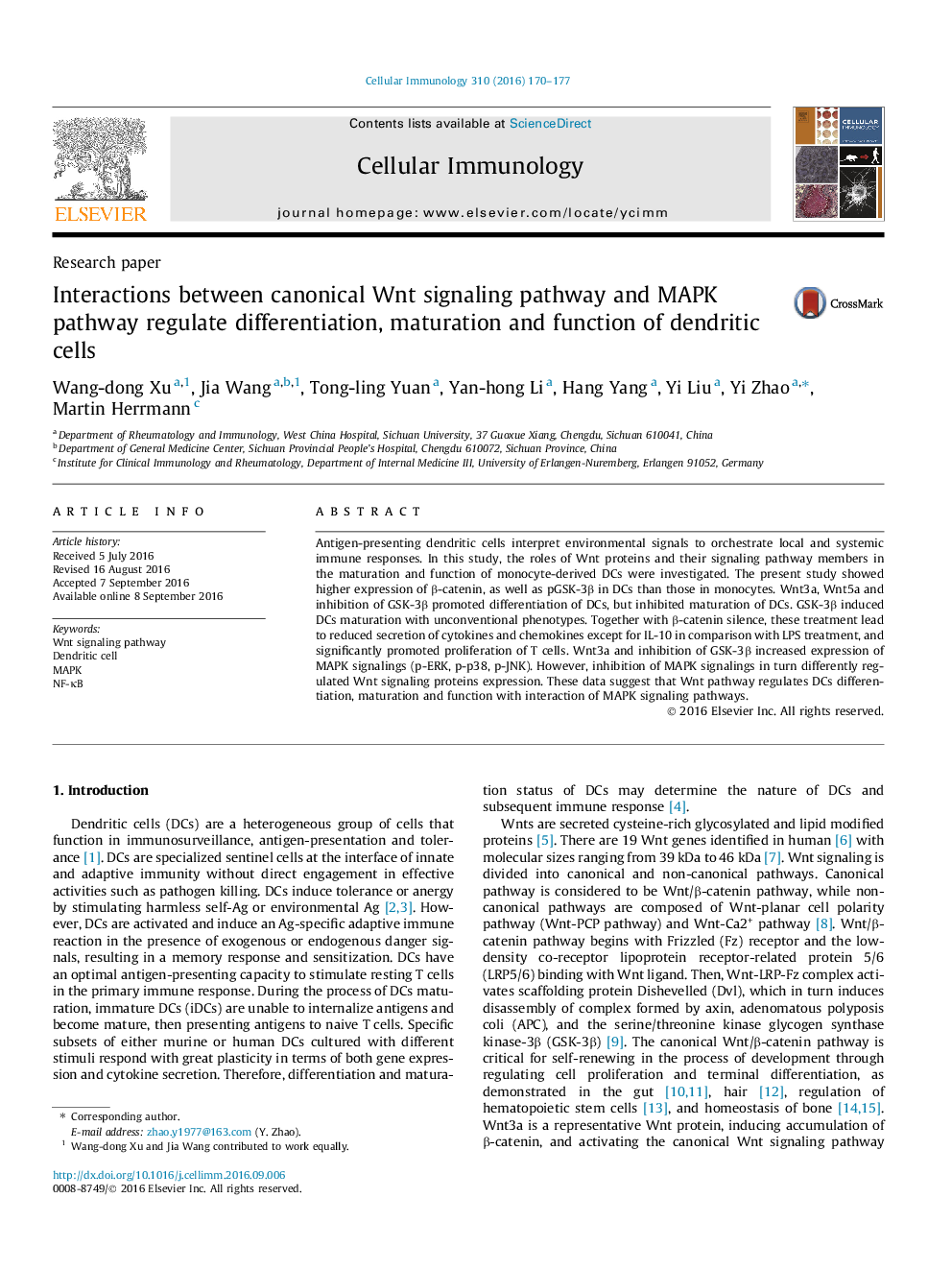| Article ID | Journal | Published Year | Pages | File Type |
|---|---|---|---|---|
| 5530731 | Cellular Immunology | 2016 | 8 Pages |
â¢Î²-Catenin was elevated in DCs.â¢Wnt pathway regulates DCs, levels of MAPKs.â¢MAPKs regulate Wnt pathway.
Antigen-presenting dendritic cells interpret environmental signals to orchestrate local and systemic immune responses. In this study, the roles of Wnt proteins and their signaling pathway members in the maturation and function of monocyte-derived DCs were investigated. The present study showed higher expression of β-catenin, as well as pGSK-3β in DCs than those in monocytes. Wnt3a, Wnt5a and inhibition of GSK-3β promoted differentiation of DCs, but inhibited maturation of DCs. GSK-3β induced DCs maturation with unconventional phenotypes. Together with β-catenin silence, these treatment lead to reduced secretion of cytokines and chemokines except for IL-10 in comparison with LPS treatment, and significantly promoted proliferation of T cells. Wnt3a and inhibition of GSK-3β increased expression of MAPK signalings (p-ERK, p-p38, p-JNK). However, inhibition of MAPK signalings in turn differently regulated Wnt signaling proteins expression. These data suggest that Wnt pathway regulates DCs differentiation, maturation and function with interaction of MAPK signaling pathways.
